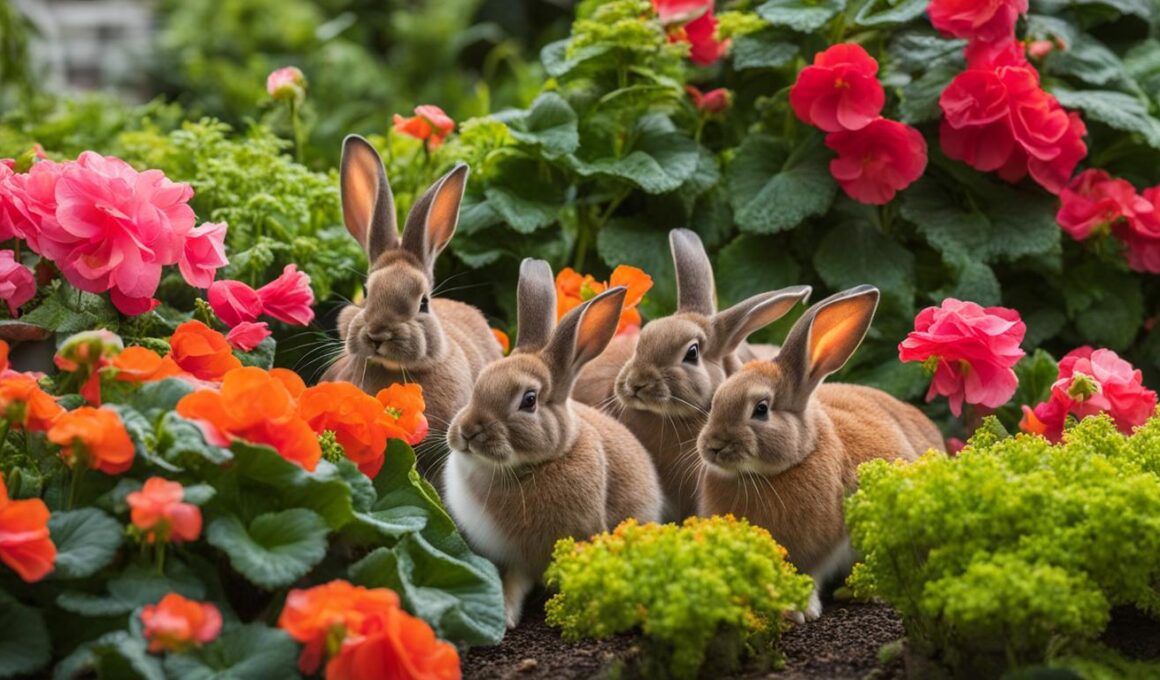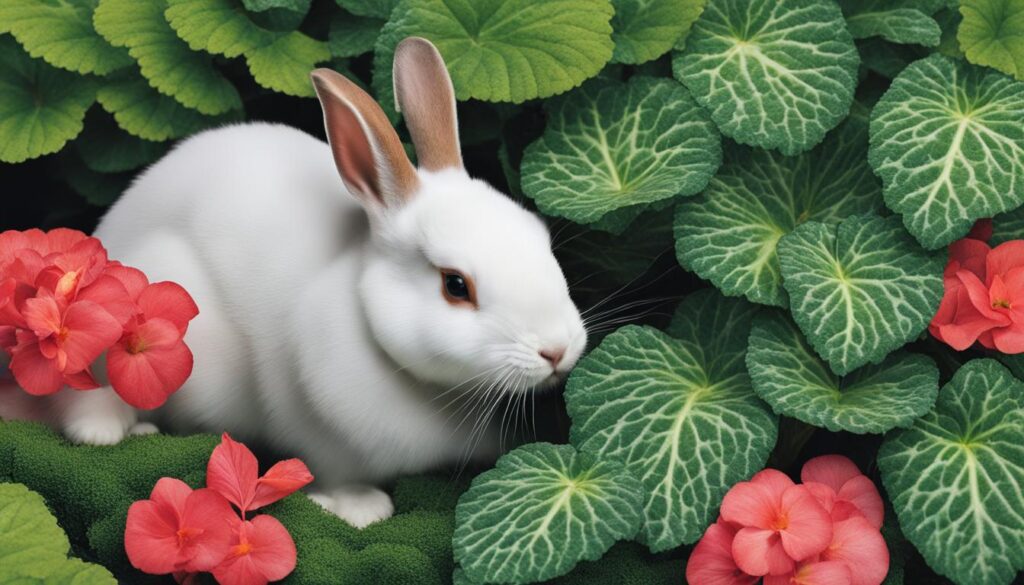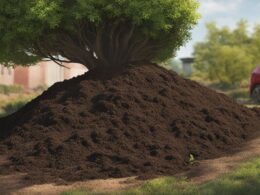Rabbits are known for their love of munching on various plants and flowers, but do they eat begonias? According to our sources, rabbits do have a tendency to eat begonias, making them a potential threat to your garden. Both wild rabbits and domestic pet rabbits are herbivores, and while not all rabbits may be inclined to eat begonias, some rabbits may find them tasty.
Begonias contain calcium oxalates, which are toxic substances that can be harmful to rabbits, particularly to their kidneys. It’s important to be aware of the potential risks and take steps to protect your garden.
Plants that are Poisonous to Rabbits: Beware of Begonias
It’s essential to know which plants are poisonous to rabbits to ensure their safety. Begonias are among the plants that are considered poisonous to rabbits. Other common poisonous plants for rabbits include azalea, bittersweet, buttercups, daffodils, deadly nightshade, figwort, foxglove, hemlock, meadow saffron, poppies, and ragwort. Additionally, garden-grown human foods such as apple pips, garlic, onion, potato plants, rhubarb, and tomato plants should also be avoided as they can be harmful to rabbits.
It’s crucial to be aware of the potential signs of poisoning if your rabbit has ingested any of these plants, such as abdominal tenderness, bleeding, breathing difficulties, loss of appetite, seizures, and weakness. If you observe any of these symptoms, it’s important to contact a veterinarian immediately.
Rabbit-Resistant Plants: Protect Your Garden from Rabbits
If you want to safeguard your garden from rabbits, planting rabbit-resistant plants can be a wise strategy. While no plant is 100% rabbit-proof, there are certain varieties that rabbits tend to avoid due to their scent or texture. Some examples of rabbit-resistant plants include anemone japonica, iris sibirica, delphinium elatum, achillea millefolium, papaver orientale, zinnia elegans, begonia semperflorens, lobularia maritima, antirrhinum majus, and salvia coccinea.
These plants have properties that make them less appealing to rabbits, allowing you to enjoy your garden while minimizing the risk of damage from these furry pests. However, it’s important to remember that hungry rabbits may still try to eat these plants if no other food sources are available. Additionally, planting holly, boxwood, hawthorn, ash, or magnolia trees can help deter rabbits from gnawing on young trees or shrubs.
By incorporating a combination of rabbit-resistant plants and other protective measures, you can create a garden that is less enticing to rabbits and better equipped to withstand their browsing habits. So, protect your garden and enjoy the beauty of your plants without worrying about rabbits feasting on them!
Will Protecting My Garden from Deer also Protect it from Rabbits Eating Begonias?
Yes, protecting your garden from deer will likely also protect it from rabbits eating begonias. However, it’s important to consider other potential threats as well. If you’re wondering “do deer eat rhubarb,” the answer is yes. So, safeguarding your garden from various creatures is a wise decision.










